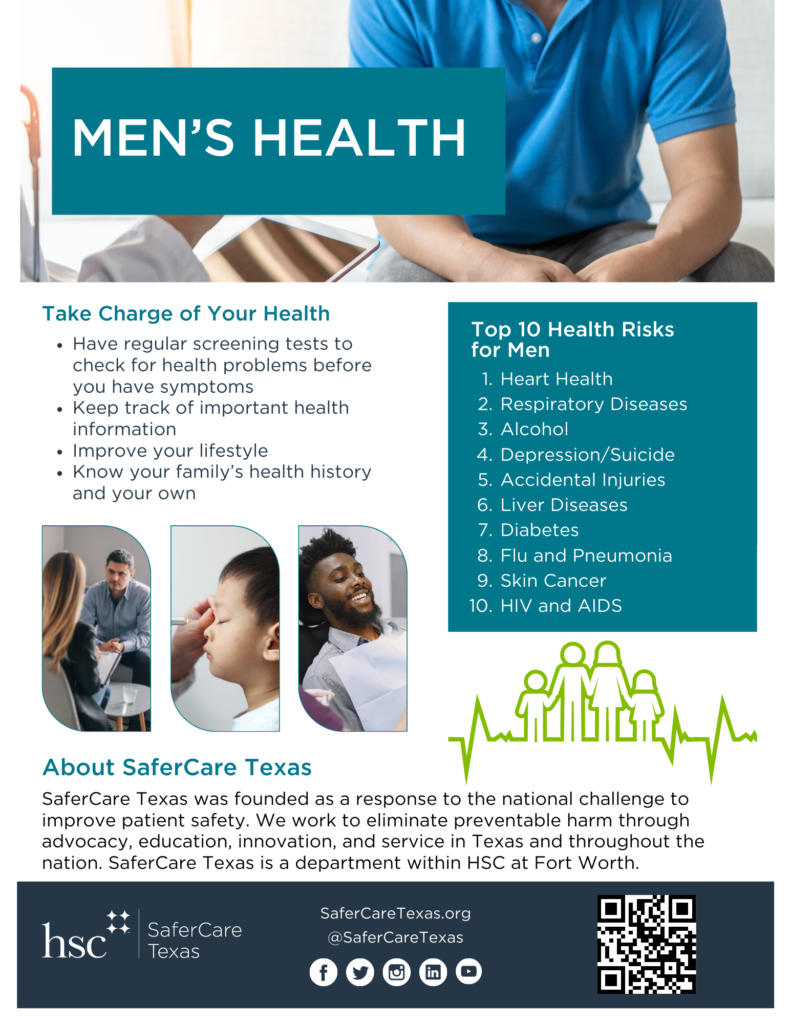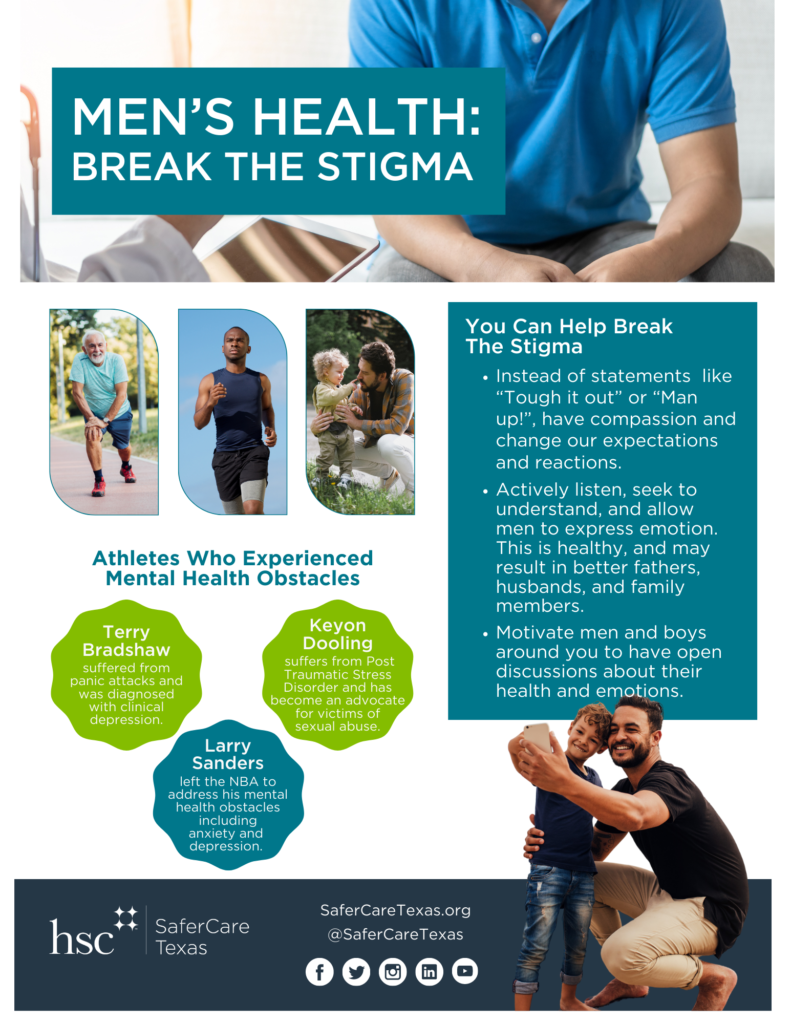National Men’s Health Week
National Men’s Health Week is the week in June leading up to Father’s Day. This week is all about bringing awareness to preventable health issues for men and boys.



SaferCare Texas's Director John Sims speak to his experience with men's health.
When men ignore symptoms and suppress emotions, they risk early death or poor quality of life. Heart disease is the leading cause of death for men, accounting for 25% of all male deaths. On average, men die five years sooner than women, and three out of four men avoid seeking medical attention when unknown symptoms present. Societal pressures to suppress feelings lead to undiagnosed depression and unhealthy coping strategies such as alcoholism, drug abuse, or violent behaviors.
A man lost consciousness at a recent senior event and ultimately lost his pulse, requiring cardio-pulmonary resuscitation(CPR) and evaluation at a hospital. Prior to his cardiac arrest, the man proposed to go home instead. He likely would have died! Another man in his early 50s rationalized his abnormal heart symptoms away. Fortunately, two medically trained family members convinced him present to the nearest emergency room for evaluation. He required quintuple(5) bypass surgery and an 18-day hospital stay. He, too, may have died! SaferCare Texas interviewed this man on their #SpeakUpForSaferCare podcast. Listen here.
Male harm is self-inflicted by avoiding to seek medical attention and concealing their feelings. Much of this harm is preventable. If you are a man or you live with a man, consider the following two steps:
1. Recognize Symptoms
Heart Disease
Chest pain/discomfort
Upper back/neck pain
Heartburn/indigestion
Extreme fatigue
Dizziness
Shortness of breath
Depression
Escapist behavior- spending a lot of time at work
Headaches/digestive problems
Alcohol/drug use
Controlling/abusive behavior
Inappropriate anger
Risky behavior
2. Reduce Your Risk
Heart Disease
Check your blood pressure: Talk with your healthcare provider
Diabetes raises your risk – get tested
Cut out smoking
Check your cholesterol/triglyceride levels: Talk with your healthcare provider
Limit alcohol
Reduce stress
Heart Disease
Set realistic goals/expectations
Emotional support: Seek out support from friends and family
Coping: Manage stress with meditation and mindfulness
Decisions: Avoid making important decisions until depression resolves
Activities: Intentionally engage in activities where you find joy.
Health: Promote better mental health with healthy eating and physical exercise
Men are essential members of society and families. Men’s bodies and emotions are similar to women’s. Recognize and reduce; follow these two steps to maintain longer and healthier lives!
About SaferCare Texas
SaferCare Texas was founded as a response to the national challenge to improve patient safety. We work to eliminate preventable harm through advocacy, education, innovation, and service in Texas and throughout the nation. SaferCare Texas is a department within HSC at Fort Worth.


